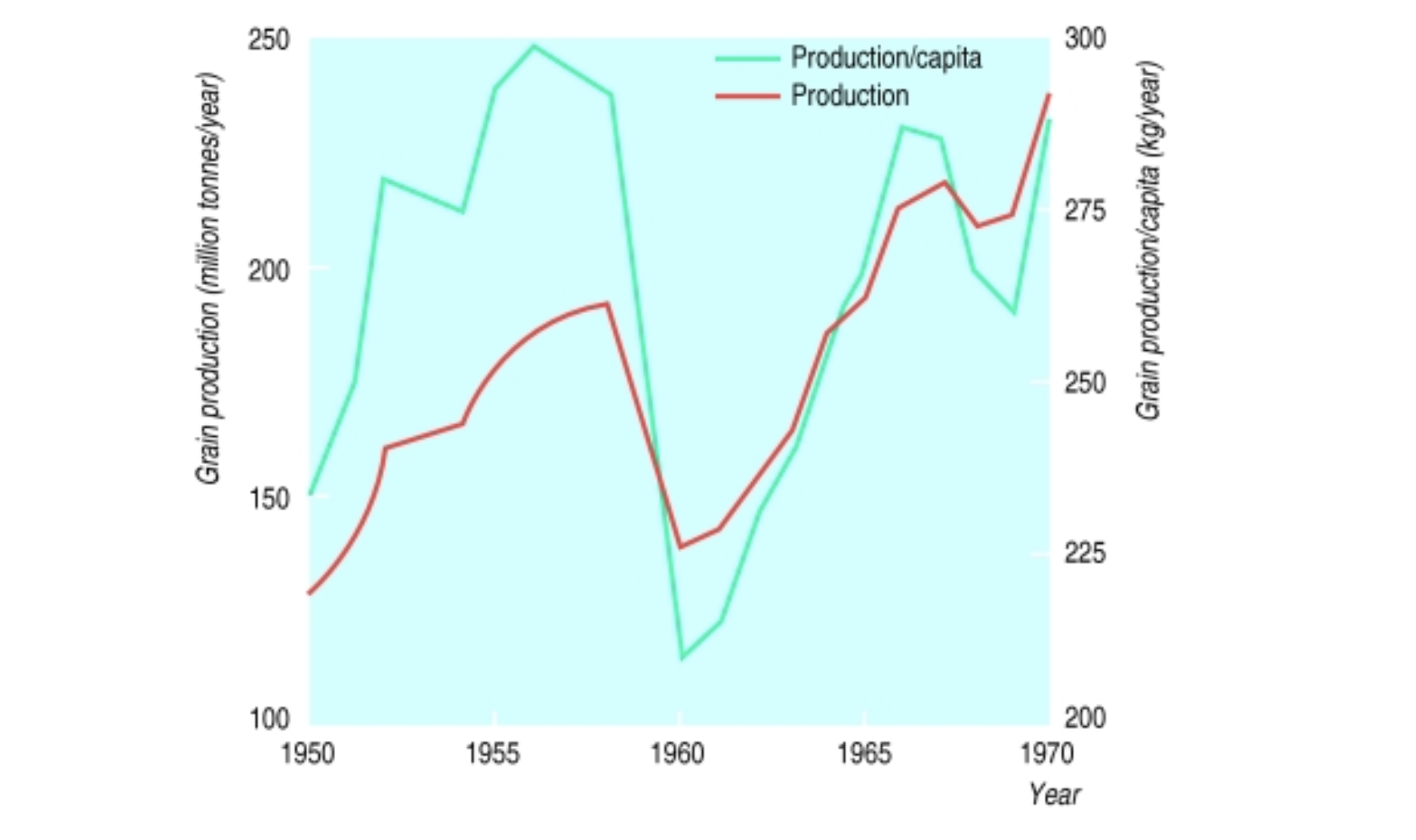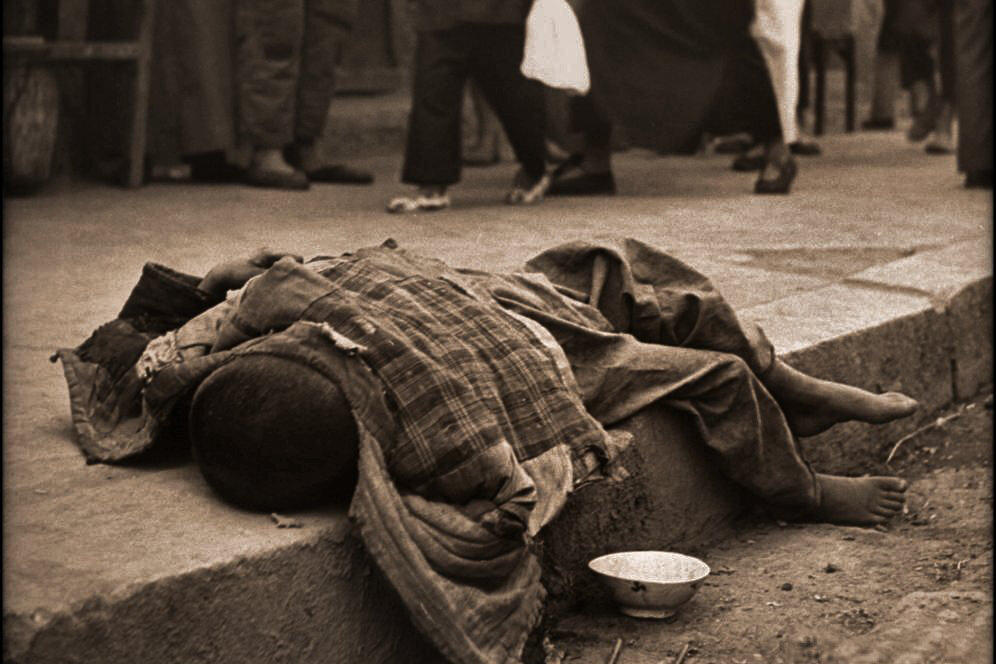The Great Chinese Famine
Though the devastation of the Great North Korean Famine is still fresh in our minds, many experts report that the greatest and deadliest famine in human history took place in China during 1959-61.
In 1958 Mao Zedong launched the Great Leap Forward, an effort to mobilize China's massive population to fast track in just a few years economic advances that took other nations many decades to accomplish. The movement focused China’s peasant population on steel mining and manufacturing, forcing them to split time between farming and smelting steel in makeshift backyard furnaces. As a result of this shift, grain harvest plummeted during this period.
Earlier in the 1950s, unable to provide for its impoverished communities, the Chinese government had formed communes to teach its people how to work collectively towards self-reliance. With the Great Leap Forward, Mao increased the size of these communes twentyfold to over 5,000 families per commune. The utopian fantasy was to push these communes to be self-sufficient in agriculture, industry, governance, education and health care.
In the face of declining crop production, but to demonstrate the perceived superiority of communal farming, provinces grossly exaggerated their grain haul figures. These inflated counts were then used to justify sending a greater share of grain to cities, leaving nothing for peasants to eat. Millions were forced to starve. It is estimated that a third of China's provinces were in a famine by the spring of 1959. The estimated death toll from this great famine ranges from 36-45 million lives.
Fleeing from China to North Korea
As China suffered famine and financial turmoil, neighboring North Korea was undergoing economic growth. Ethnic Koreans of Chinese nationality, known as “Joseon-jok”, saw this as an opportunity to go to a place with familiar language, family ties and most importantly, where they would not die of starvation. With the upside of escaping the persecution they often faced in China, it was also not too difficult to swap one authoritarian regime for another in North Korea.
The Great North Korean Famine
Fast forward three decades to 1991 when the Soviet Union collapsed and with it dissolved one of North Korea’s few trade relationships. Trade from the Soviet Union dissipated from about 60 percent of North Korea’s economy in 1988 to virtually nothing.
Between 1990 to 1995, North Korea was struck by a series of natural disasters ranging from cold fronts to multiple years of flooding that decimated grain production. Even with outside food aid, a broken distribution system controlled by a corrupt government led to the death of upwards of 3.5 million citizens during the North Korean famine which spanned from 1995 to 1998. As the infrastructure of the country unraveled into chaos, between 100,000 to 300,000 North Korean defectors made their way out of the country seeking refuge and resources.
Flight from North Korea to China?
The world is closely monitoring North Korea for signs of another famine, which is primarily a result of halted trade and commerce with the outside world in reaction to COVID-19. If North Korea does face another major famine, it could lead to another mass exodus similar to what the world witnessed during the great North Korean famine of the 1990s.
A Different China Today
Much has changed in China over the past 30 years. President Xi Jinping said recently during the 100 year celebration of the Chinese Communist Party that they "will never allow anyone to bully, oppress or subjugate China". The irony is that China is perceived to be bullying others as China’s communist regime continues to grow in power and cunning. A new Pew poll from June 30, 2021 found that a majority of people surveyed in 15 out of 17 nations around the world view China negatively. The primary reasons being: ground zero for COVID-19, aggression against self-ruled Taiwan and in the South China Sea, not to mention dwindling freedoms in Hong Kong and human rights violations in Tibet and Xinjiang province.
China also actively captures and returns defectors back to North Korea. The North Korean refugees in our network who live in China constantly live under this very real threat. We have witnessed the Church in China under attack and most missionaries we know have left. If another mass migration from North Korea takes place, we fear for the safety of the refugees as surveillance and monitoring continues to increase. China’s leaders conveniently make little mention of its speckled history. We hope the people of China remember the devastation of their own famine if North Korean refugees start to cross over the Tumen and Yalu river again.










